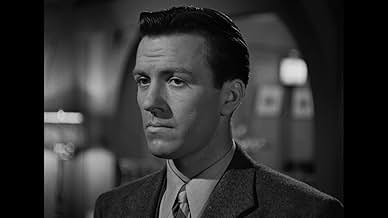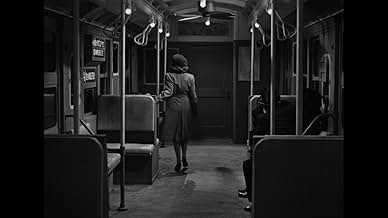IMDb RATING
6.7/10
8.5K
YOUR RATING
A woman in search of her missing sister uncovers a Satanic cult in New York's Greenwich Village and finds that they could have something to do with her sibling's random disappearance.A woman in search of her missing sister uncovers a Satanic cult in New York's Greenwich Village and finds that they could have something to do with her sibling's random disappearance.A woman in search of her missing sister uncovers a Satanic cult in New York's Greenwich Village and finds that they could have something to do with her sibling's random disappearance.
- Awards
- 4 nominations total
Joan Barclay
- Gladys
- (uncredited)
Patti Brill
- Minor Role
- (uncredited)
Wally Brown
- Durk
- (uncredited)
Feodor Chaliapin Jr.
- Leo
- (uncredited)
Wheaton Chambers
- Missing Girl's Father
- (uncredited)
James Conaty
- Party Guest
- (uncredited)
Edith Conrad
- Minor Role
- (uncredited)
Kernan Cripps
- Police Officer Danny
- (uncredited)
- Director
- Writers
- All cast & crew
- Production, box office & more at IMDbPro
Featured reviews
What "The 7th Victim" has going for it is its uniqueness. It certainly is unlike any film from that era that I remember seeing.
This is one of those films that it helps to know nothing about before viewing. To read any sort of capsule about the flick would definitely take away from the enjoyment of the film.
Having said that, I am not totally satisfied with the payoffs the movie provides. There are too many gaps in logic, combined with a bit too much moralizing. Some people find themselves in situations in this film that just simply seem to lack any credibility.
For some fascinating sequences (most notably, one that takes place in a shower and seems to have been seen by Alfred Hitchcock) this film is definitely worth a look-see.
For me, the individual elements of the film was far more interesting than the sum of its parts.
This is one of those films that it helps to know nothing about before viewing. To read any sort of capsule about the flick would definitely take away from the enjoyment of the film.
Having said that, I am not totally satisfied with the payoffs the movie provides. There are too many gaps in logic, combined with a bit too much moralizing. Some people find themselves in situations in this film that just simply seem to lack any credibility.
For some fascinating sequences (most notably, one that takes place in a shower and seems to have been seen by Alfred Hitchcock) this film is definitely worth a look-see.
For me, the individual elements of the film was far more interesting than the sum of its parts.
The Seventh Victim is directed by Mark Robson and written by DeWitt Bodeen and Charles O'Neal. It stars Tom Conway, Jean Brooks, Isabel Jewell and Kim Hunter. Music is scored by Roy Webb and cinematography by Nicholas Musuraca.
When she is told her older sister Jacqueline has vanished, Mary Gibson is forced to leave her private school and travel to New York City to hopefully find her. Obtaining help from her sister's husband, Gregory, and the suspicious help of psychiatrist, Dr. Louis Judd, Mary finds that the deeper she goes the more dangerous the situation becomes, it appears that Jacqueline has got herself involved with something very sinister indeed.
He calleth all his children by their name.
Coming as it does from producer Val Lewton, one shouldn't be surprised that The Seventh Victim is a hauntingly poetic creeper of a movie, no shocks or out and out horror here, just a genuine sense of dread and a pervading sense of doom. When delving a bit further into the making of the picture it becomes apparent that an original cut of the piece was considerably longer, this explains a lot to me as the film, as good as it is in its 71 minute form, is not fully formed and at times not the easiest to fully understand. It would seem that although originally intended as a longer mainstream picture, a difference of opinion between Lewton and the studio (thought to be about the hiring of first time director Mark Robson) meant it was cut to a B movie standard.
The Palladists.
What remains, though, isn't at all bad, in fact it's unique. Robson's direction (obviously guided by Lewton) is perfectly sedate and in keeping with the mood of the piece, and between them they have conjured up some most unforgettable scenes and imagery. One particular shower scene lingers long after the credits roll, the perfect use of a silhouette probably had a certain Alfred Hitchcock taking notes, whilst the ending is quite simply a piece of bleak and unforgettable cinema. Musuraca is the key ingredient, though, the ace cinematographer is all about the shadows, blending noir with Gothic to create atmospheric paranoia. Satanism in Greenwich Village, suicide, psychological discord and urban dread, all potent little threads dangled into the slow burn pot. But ultimately it's the mood of the picture that gets you, unease and the murky mystery ensuring you are hooked throughout. 7.5/10
When she is told her older sister Jacqueline has vanished, Mary Gibson is forced to leave her private school and travel to New York City to hopefully find her. Obtaining help from her sister's husband, Gregory, and the suspicious help of psychiatrist, Dr. Louis Judd, Mary finds that the deeper she goes the more dangerous the situation becomes, it appears that Jacqueline has got herself involved with something very sinister indeed.
He calleth all his children by their name.
Coming as it does from producer Val Lewton, one shouldn't be surprised that The Seventh Victim is a hauntingly poetic creeper of a movie, no shocks or out and out horror here, just a genuine sense of dread and a pervading sense of doom. When delving a bit further into the making of the picture it becomes apparent that an original cut of the piece was considerably longer, this explains a lot to me as the film, as good as it is in its 71 minute form, is not fully formed and at times not the easiest to fully understand. It would seem that although originally intended as a longer mainstream picture, a difference of opinion between Lewton and the studio (thought to be about the hiring of first time director Mark Robson) meant it was cut to a B movie standard.
The Palladists.
What remains, though, isn't at all bad, in fact it's unique. Robson's direction (obviously guided by Lewton) is perfectly sedate and in keeping with the mood of the piece, and between them they have conjured up some most unforgettable scenes and imagery. One particular shower scene lingers long after the credits roll, the perfect use of a silhouette probably had a certain Alfred Hitchcock taking notes, whilst the ending is quite simply a piece of bleak and unforgettable cinema. Musuraca is the key ingredient, though, the ace cinematographer is all about the shadows, blending noir with Gothic to create atmospheric paranoia. Satanism in Greenwich Village, suicide, psychological discord and urban dread, all potent little threads dangled into the slow burn pot. But ultimately it's the mood of the picture that gets you, unease and the murky mystery ensuring you are hooked throughout. 7.5/10
As a longtime booster of The Cat People, I tended to give the credit to its director Jacques Tourneur (later to helm Out of the Past). Seeing The Seventh Victim, also from Val Lewton's B-movie unit at RKO, changed all that. It seems Lewton was the resident genius, cobbling together stylish horror/suspense films on shoestring budgets. The young Kim Hunter, away at a private school, learns that her tuition hasn't been paid because her sister, owner of a beauty empire, has disappeared. She leaves school and starts scouring New York's Greenwich Village (also the locale of much of The Cat People) only to uncover a cult of devil worshipers. Lewton's thrillers haven't dated the way James Whale's, for instance, have, possibly because they depend so heavily on suggestion; the literalness of today's "horror" films is completely alien to these suggestive, truly chilling films. The RKO B-movie unit under Lewton was also, probably, a major influence on the look of film noir, soon to become the cutting-edge aesthetic in American movies. This is as tense and satisfying a 75 minutes as you'll find until the Mann/Alton team's seminal noirs of a few years later.
I'm amazed not one reviewer has mentioned the outstanding contribution by Jean Brooks as the missing Jacqueline Gibson. Although she makes a late appearance Jean is very impressive in her five scenes, particularly her monologue describing how she came to join the Palladists and her nighttime flight being pursued by the assassin with the switchblade. None of the Lord's prayer survives in the print shown on British television. This is strange as two lines were reportedly intact when the film was originally shown in British cinemas.The excellent Brooks who appeared in two other Lewton films was sadly wasted by RKO and subsequently relegated to support and bit roles.
This little known and scantily screened Val Lewton masterpiece is a must see. The eerie atmosphere established at the boarding school where Kim Hunter learns of her sister's disappearance continues throughout. Scenes including her nightmarish experience in a darkened cosmetic company hallway illustrate how far afield recent film has gotten from true suspense as sustained in the imagination of the viewer. The chilling normalcy of the lives of the Satanists she comes to be pursuing in an effort to understand what has happened to her sister, and their quiet menace as they later gather forces to will the suicide of one of their ranks is gripping. The scenes depicting her sister's frantic run through the streets to escape a pursuer will remind others of the opening of Lewton's other little shown film The Leopard Man. Viewing this film further reinforces my belief that an intelligent film patron does not need to be clubbed over the head by excessive gore and violence to be truly scared by a film if the story is intriguing and the execution is as good as in The Seventh Victim.
Did you know
- TriviaErford Gage, who played the poet Jason Hoag, enlisted in the U.S. Army in August 1943 (around the time this film was released) and was killed in action in the Phillipines in March 1945.
- GoofsThe opening text reads: "I run from death, and death meets me as fast, And all my pleasures are like yesterday." The movie attributes the quote to John Donne's Holy Sonnet #7. But it is actually from Holy Sonnet #1.
- Crazy credits[title after starting credits] I runne to death, and death meets me as fast, and all my pleasures are like yesterday. Holy sonnet #VII Jonne Donne
- Alternate versionsExists in a computer-colorized version
- ConnectionsFeatured in Aweful Movies with Deadly Earnest: The Seventh Victim (1967)
- SoundtracksMay Heaven Forgive You
(uncredited)
From "Martha"
Music by Friedrich von Flotow
Arranged by Roy Webb
[The tune playing on the barrel organ as Mary goes to the Dante for the first time]
Details
- Release date
- Country of origin
- Languages
- Also known as
- La séptima víctima
- Filming locations
- Production company
- See more company credits at IMDbPro
- Runtime
- 1h 11m(71 min)
- Color
- Aspect ratio
- 1.37 : 1
Contribute to this page
Suggest an edit or add missing content






































